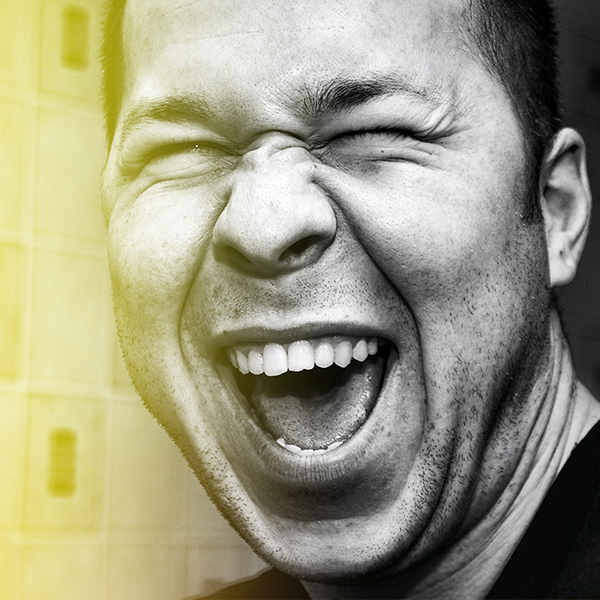Quiet Quitting: Symptom of Misalignment or a Wake-Up Call?

You’ve probably seen the terms “quiet quitting” trending on LinkedIn, TikTok, or in casual office chats. In plain terms, it’s when you still meet your job description but stop going above and beyond. You do what’s expected, but you’re no longer volunteering for late-night calls, weekend work, or extra assignments that never seem to get acknowledged.
It’s not storming out or ghosting your boss. It’s simply… stepping back.
Why has it become such a hot topic? Because it resonates.
Post-pandemic, many professionals are questioning how much of their lives they’re willing to give away to work. For some, quiet quitting is about protecting energy. For others, it’s the quietest protest they can make in a workplace that no longer feels like theirs.
In this piece, we’ll explore two possible truths about quiet quitting: as a symptom of misalignment and as a wake-up call for change. And perhaps, you’ll recognise which one rings true for you.
What Quiet Quitting Really Means
More often than not, quiet quitting is not laziness. Most people who “quiet quit” have already spent years – or decades – going above and beyond. They’ve answered midnight emails, skipped lunch for “urgent” meetings, and stayed in roles long past their sell-by date.
The social media version often oversimplifies the trend. Memes show employees slouching at their desks, coffee in hand, saying, “Not my problem anymore.” But in real life, quiet quitting is often a slow fade and more about emotional survival than rebellion.
You’re good at your job, but you’ve stopped feeling that spark. You’re still reliable, but you’ve drawn a firm line around your energy. You stop chasing praise that doesn’t come. You no longer sacrifice family time to finish a project early for someone else’s deadline.
If that sounds familiar, know this: you’re not broken, unmotivated, or failing. You may just be protecting what’s left of your energy while trying to figure out what’s next.
When Quiet Quitting Signals Misalignment
Sometimes quiet quitting is a message from your deeper self: “We’re out of sync here.” That misalignment might look like:
- Your values and your workplace values don’t match. You believe in collaboration; your workplace rewards competition. You value wellbeing; your workplace celebrates burnout disguised as “dedication.”
- You’ve lost a sense of direction. Career goals that once felt inspiring now feel irrelevant, or you’re unsure what they even are anymore.
- Your contributions go unnoticed. You work hard, but recognition and growth never arrive. Promotions go to others; your development conversations are vague at best.
Imagine an engineer who joined a start-up because of its mission to create sustainable tech, but now spends their days optimising an app feature designed purely for ad revenue. Or a teacher who once felt purpose in the classroom, but whose work is now dictated entirely by rigid metrics.
These aren’t minor frustrations. Over time, they chip away at engagement and identity. Quiet quitting becomes less about “slacking” and more about surviving a misaligned environment.
Quiet Quitting as a Wake-Up Call
There’s another way to see it: quiet quitting as a gentle alarm clock. It’s the moment your body and mind say, “Pause. Take stock. What’s going on here?”
When you stop running at full speed, you create space to notice things:
- The tasks you dread vs. the ones you secretly enjoy.
- The times of day you feel most alive.
- The situations where you feel respected, and the ones where you don’t.
This pause can lead to healthier boundaries and deeper self-awareness. It’s not about withdrawing forever but about recalibrating.
And sometimes, that recalibration benefits everyone. You may rediscover a part of your role you’d neglected. Or you may realise that what you truly need is change. In both cases, it’s a chance to step into your next chapter with intention.
At The Happy Mondays Co., we see this moment often in Wellbeing Coaching, where people realise that disengagement isn’t just an ending, it’s a turning point. And while no one can make those choices for you, having someone to guide the reflection can make the path clearer and kinder.

Challenging the Idea of Quiet Quitting: Maybe It’s Time to Move On
The danger in treating quiet quitting as a “phase” is that it can become a holding pattern. Weeks turn into months, and you remain in a job that no longer challenges or fulfils you, not because it’s right for you, but because it’s familiar.
Fear of change is powerful. Stability is tempting. But if a role no longer nourishes you, staying can be just as risky as leaving. That slow drip of disengagement can lead to burnout, resentment, and even health issues.
Sometimes the healthiest move isn’t to hang on until things “get better,” but to consider that they might not, and that you deserve a role, team, or organisation that energises you.
Navigating the Crossroads
If you’re in the midst of quiet quitting, here are some reflection prompts to help you understand what’s really happening:
- Am I disengaging because I’m burnt out, or because I’ve outgrown this role? Burnout can be healed in the right environment; outgrowing a role means you’re ready for the next challenge.
- What parts of my work still bring me joy? Even a small spark is worth noticing. It might be a clue to your future path.
- If I could design my ideal workday, what would it look like? This can reveal hidden needs you haven’t voiced.
You don’t need all the answers right away. Sometimes the first step is simply asking better questions.
How to Move Forward Without Burning Bridges
Whether you decide to re-engage or move on, here are ways to take action with grace:
- Reconnect where you are. Look for projects that align with your interests. Suggest improvements that would benefit both you and the team.
- Seek alignment openly. Have an honest conversation with your manager about your goals and needs, without framing it as dissatisfaction.
- Prepare for a shift. Start updating your skills, networking with intention, and clarifying what you want in your next role.
And remember: leaving a job doesn’t have to be a dramatic exit. It can be a thoughtful, respectful transition that preserves relationships and your own dignity.
Conclusion: Quiet Quitting as an Opportunity
Quiet quitting can feel like a quiet defeat, but it can also be the start of something better.
It can be the symptom that reveals a deeper misalignment. Or it can be the wake-up call that nudges you toward new boundaries, fresh clarity, or even a whole new path.
If you’re in that space now, try to see it as a chance to choose how you want to show up in your work and life.
And if you’d like someone to walk with you as you explore what alignment really means for you, Wellbeing Coaching at The Happy Mondays Co. is always an open door.



















